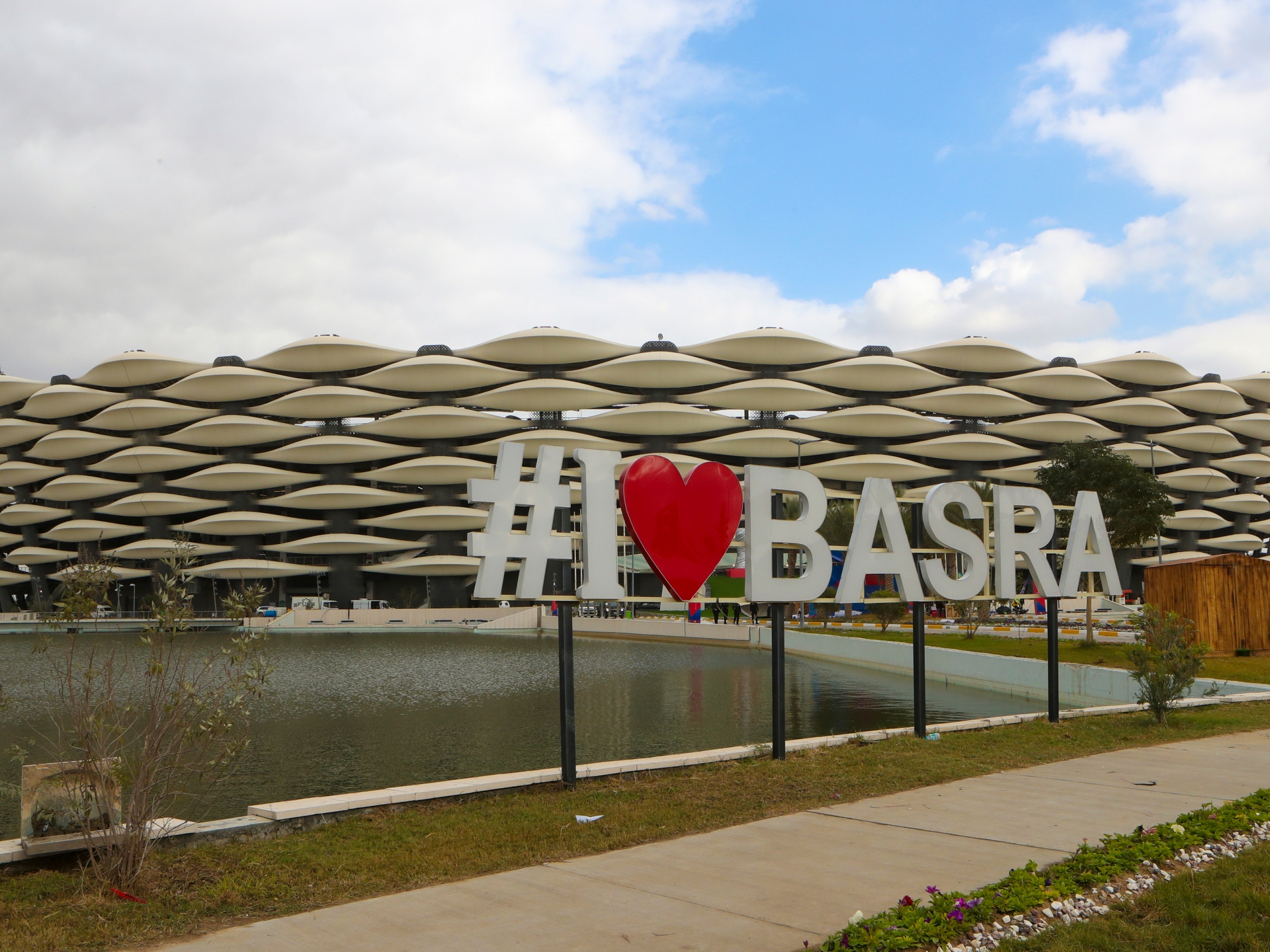For the first time since 1979, Iraq is hosting a major global event — the 25th Arabian Gulf Cup.
To say Iraq has been through devastation in recent years would be an understatement. The Middle Eastern nation, proudly crowned as the cradle of civilisation, has for decades suffered from the consequences of a brutal dictatorship, crippling international sanctions, years of destructive war and armed violence followed by widespread government corruption and ineptitude.
Given this recent traumatic history, to see Iraq finally celebrated internationally is the feel-good factor the nation craves, especially on the eve of the 20th anniversary of the United States-led invasion of Iraq — a war that has killed hundreds of thousands and counting, displaced millions and triggered instability across the region.
For years Iraq became synonymous with war both in popular culture and for news outlets around the world. As an Iraqi growing up in the West, rarely would I see people of my background reflected positively in the media. Films such as The Hurt Locker and American Sniper glorified the killing of Iraqi civilians and amplified the stereotype that all Iraqis were waiting to explode bombs or fire guns.
It was only in 2007 that I and Iraqis around the world finally had something to rejoice over, something that helped forge a collective identity. And it was all thanks to football.
Amid one of the worst years in terms of the human death toll in Iraq, with former US President George Bush’s “troop surge” serving as the backdrop, the Lions of Mesopotamia — Iraq’s men’s national football team — managed to, against all odds, triumph at the 2007 Asia Cup.
Almost overnight, this football-obsessed nation united as the war was put on pause and sectarian divisions deemed vain. With the brush of a stroke, the national team were able to show how football transcends mere entertainment.
Then in 2018, FIFA, the sport’s governing body globally, lifted a three-decade ban on Iraq hosting international matches, recognising the country’s move towards — a very, very fragile — stability. That move paved the way for the country to host the Arabian Gulf Cup this month in Basra, finally bringing joy to the fractured nation.
For decades, tourists have either feared visiting Iraq or simply couldn’t, with the country‘s borders closed because of a range of no-fly zones. But the reality is Iraq has made progress in recent years.
According to the International Monetary Fund (IMF), it is the 6th fastest-growing economy in the world. Malls and restaurants have been sprawling across the nation, with tourist destinations comparable to other countries in the Gulf. Baghdad has not witnessed a car bomb strike since 2021, a drastic change from the near-daily attacks rocking the city in the not-so-distant past. This improved security has allowed Iraq to safely welcome religious tourists, with 21 million people descending on Karbala for this year’s Arbaeen.
By welcoming Arabs from the rest of the Gulf, Iraq is sharing its culture with its neighbours for the first time in decades. Tourists, including sports presenter Meshal Shaker, have already been singing their praise of Iraq’s hospitality.
The recent World Cup in Qatar has shown just how powerful sport can be in sharing cultures around the world. By hosting the largest sporting event in the world, Qatar was able to challenge stereotypes about Arabs and tackle Islamophobia, as people from all corners of the world descended on the country.
Iraq too can shift people’s perceptions as it welcomes its neighbours across the Gulf. Much like Qatar’s release of multiple songs for the World Cup, Iraq too has released a plethora of tracks for this winter’s tournament, all with the theme of welcoming its neighbours after years of absence, with Bassam Mahdi’s song declaring, “The country misses its brothers” in reference to its Gulf neighbours. It’s a huge shift from Hussam al-Rassam’s viral 2007 song with powerful lyrics reflecting war: “Have you ever seen a player in the stadium playing with his hands on his wounds. This is our Iraqi player; in devastation he brought us joy.”
Morocco’s success at the World Cup showed the power of football in the region and the unity it brought across the Arab world. When any Arab team wins, all Arabs are successful. Irrespective of how the Iraqi national team performs in Basra this month, the Arab world must unite in supporting the country to heal from its recent wounds.
To be sure, it is important to recognise that these wounds persist. In the form of widespread political corruption and the lack of basic infrastructure. In a housing crisis that has left 3.2 million Iraqis living in informal settlements and in the lack of clean water in Basra. In a failing health sector that continues to cost lives.
Still, to have Basra host the Arabian Gulf Cup finally shows the world that Iraqis, just like their peers in other countries, have always wanted to be able to celebrate life. For millions of Iraqis, this is the country’s moment in the football sun, as it rises from the shadows of war it has been lost in for so long.
The views expressed in this article are the author’s own and do not necessarily reflect Al Jazeera’s editorial stance.
